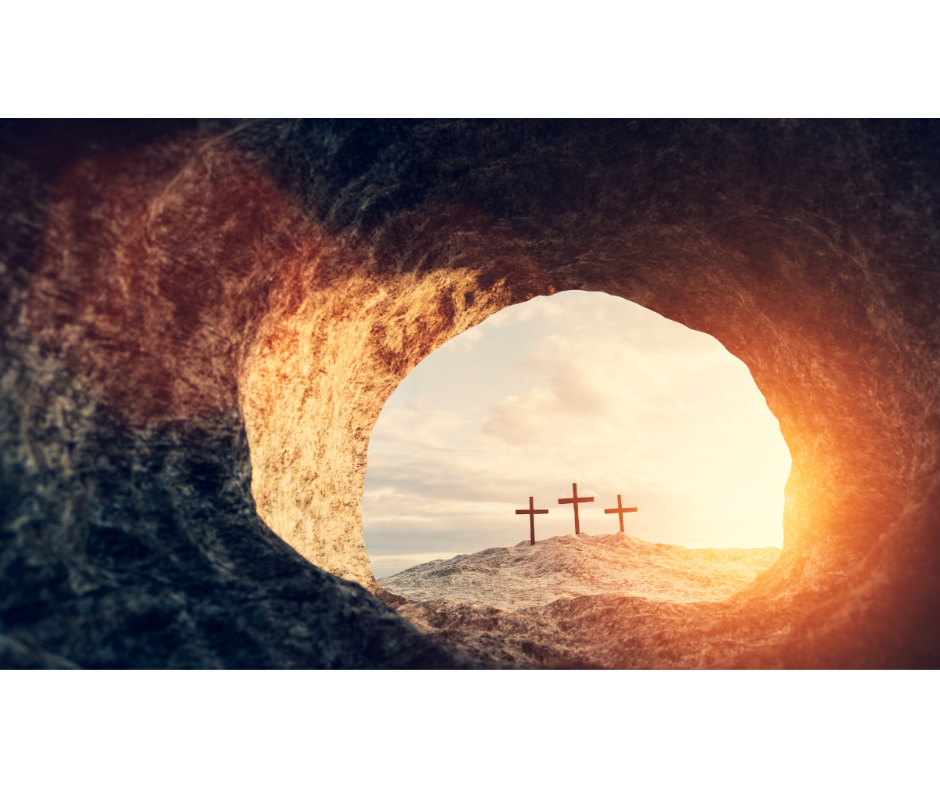Good Friday, Scapegoating, and American Politics

Jesus, a victim of scapegoating, understood all too well its origin and its outcome. From the “Hosannas” of Palm Sunday to the “Crucify him!” of a few days later, Jesus witnessed the fears of the human heart and how easily those fears turn to blame. Good Friday marks the ultimate scapegoating, the crucifixion of Jesus of Nazareth.
What is happening in the heart of the person who turns to scapegoating? It’s easy for us humans to believe that by hating a person, we separate ourselves from evil and differentiate ourselves as good. Yet the opposite is actually true. When we give in to hate, we begin to become like what we are hating. When hatred and violence grow in our hearts, we move closer along the spectrum toward the object of our hate. Jesus knew this on Good Friday, and he also knew how unconsciously this was occurring when he prayed from the cross, “Father, forgive them, for they do not know what they are doing.”
The battle between good and evil plays out not between individuals but within individuals. The battle between good and evil is fought within every human heart. Yet we naturally shun the fear and hatred within us, and so we seek shortcuts instead of doing the hard inner work we need to do. When a leader arises who blames a person or group for our woes, whether in a family, an organization, or a nation, the appeal of that leader proves strong. At this moment in American politics, Donald Trump’s scapegoating of various groups, including immigrants and Muslims, is proving irresistible to many. Why do the hard inner work, personally and as a nation, when it is so easy to blame others?
The trouble with scapegoating is threefold. First, of course, it damages the individuals and groups who are its targets. Second, it damages the ones who hate those individuals and groups by filling their hearts with fear and hatred. Third, it doesn’t solve anything. When, in the history of the world, has scapegoating resulted in a good outcome for those who scapegoat? Never. There is some relief for awhile, but the problems don’t go away because they haven’t been addressed at the root. So the cycle repeats itself: a new scapegoat gets identified, that person or group is crucified or chased out of town, some relief is felt for awhile, the problems resurface, and so on.
Jesus said, “Whatever you do to the least of these, you do to me.” Who are the least of these today? In America today, they are those we scapegoat. Will we keep crucifying Jesus? Will we keep participating in scapegoating or not standing up for those scapegoated? Who are you, this Good Friday? Are you in the crowd, shouting “Crucify him!” Are you Peter, not standing up for Jesus? Or can you find it in your heart to stand with Jesus to the end, as the women at the foot of the cross did, and stand up for those scapegoated in our time and place?
(This article is a revision of an article that first appeared in the Executive Soul newsletter in 2016.)

Margaret – Such powerful and truthful words regarding scapegoating and “what did Jesus do”. The words of Jesus stand true wherever we are. It crosses all boundaries for we must get to the root for true healing. Thank you again for your truth telling. Peace and Blessings to you. 🙏🏾🙏🏾
Thank you, DeBorah.
Thank you, Margaret. The deep graces of Friday and Saturday and the joy of Easter to you.
Thank you, Catherine. The deep graces of Friday and Saturday and the joy of Easter to you, as well.
Thank you Margaret your message finds its way deep into the south of Namibia where my family and I are travelling. Indeed how easily do we scapegoat others who are different, thinking different, doing different. I have also felt the effects of scapegoating in my own familiy recently. It reminds me of the pain Jesus suffered, mine but a tiny little scratch. May we all receive grace upon grace to grow compassionate and long-suffering hearts.
Thank you, Hilze. Yes, in families, too. It happens everywhere. You are sharing in the fellowship of Christ’s suffering.
Margaret, thank you for such a powerful reminder at the Heart of these holy days…
A glorious Easter to you.
Thank you, Liedeke. A glorious Easter to you, too.